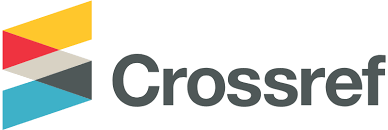PEMBERDAYAAN KELOMPOK IBU-IBU PKH DALAM PEMBUATAN MAKANAN SEHAT DI KAMPUNG BULANG KOTA TANJUNGPINANG
Abstract
Program Keluarga Harapan (PKH) is provided by the government for poor families as an effort to accelerate poverty reduction. The Bulang Village area will receive PKH as many as 270 families in 2021. Those who received assistance formed a KUBE (Kelompok Usaha Bersama) group in the form of a home industry. The methods used are socialization and training, discussion and practice or simulation with a participatory approach. This activity provides training and knowledge about healthy food preparations which usually use sugar which is now replaced with honey. Because the gluten content in sugar is very high which will cause diabetes. The aim is to develop the home industry, it is hoped that it can become a job opportunity, especially for housewives, in an effort to improve the social welfare of the family. The products that will be produced are processed foods made from bananas which will be made into banana cakes, crispy bananas and banana nuggets. The result is increased knowledge, skills, health, economy and independence for PKH members.
Keywords
Full Text:
181-190References
Adi Falah S.M. 2020. Bisnis Kimia dan Pendidikan Kimia Pisang dan Produk Olahannya. Universitas Sebelas Maret.
Aida, Y., Mamuaj, F., dan Agustin, A. 2014. Pemanfaatan Jantung Pisang (Musa paradisiaca) Dengan Penambahan Daging Ikan Layang (Decapterus sp). Pada Pembuatan Abon. Universitas Sam Ratulangi.
Amanah, Siti. (2013). Makna Penyuluhan dan Transformasi Perilaku Manusia. Jurnal Penyuluhan, 1 ( 3), 63 – 67.
Amelia, J. R., Ramadhan, M. F., Azni, I. N., Rahmawati, R., & Sandrasari, D. A. 2022. Pelatihan Cppob Bagi Calon Pengusaha Jamu di Kelurahan Jatijajar, Depok. Jurnal Industri Kreatif dan Kewirausahaan, 5(2).
Atmodiwiryo, Soebagio. 2002. Manajemen Pelatihan. Jakarta: Ardadizya Jaya. Ellis,
G.F.R. 1984. The Dimension of Poverty dalam Social Indicator Research Esmara,
H. 1986. Perencanaan dan Pembangunan di Indonesia, Jakarta: Gramedia .
Badan Pusat Statistik Indonesia. 2021. Produksi Tanaman Buah-Buahan.
https://www.bps.go.id/indicator/55/62/1/produksi-tanaman-buah-buahan.html
Ismanto, H. 2015. Pengolahan tanpa Limbah Tanaman Pisang.
Kempton, J. 2015. Human Resource Management and Development. London: MacMillan Press Ltd.
Komaryati dan Adi, S. 2013. Analisis Faktor-Faktor yang Mempengaruhi Tingkat Adopsi Teknologi Budidaya Pisang Kepok (Musa paradisiaca) di desa Sungai Kunyit laut Kecamatan Sungai Kunyit Kabupaten Pontianak. Iprekas, 53-61.
Putri, T.K. 2015. Pemanfaatan jenis-jenis Pisang (banana dan plantain) lokal Jawa Barat Berbasis Produk Sale dan Tepung. Jurnal Kultivasi, 14(2).
Sukaesih, Uuh dan Miswan. 2021. Pemberdayaan Masyarakat Dalam Pengelolaan Sampah Rumah Tangga Di Rw 03 Kelurahan Kalisari Jakarta Timur. Jurnal Industri Kreatif dan Kewirausahaan, 4(1).
Todaro, P. 2013. Pembangunan Ekonomi di Dunia Ketiga, Jilid I. Jakarta: Ghalia Indonesia.
Usman, Sunyoto. 2013. Pembangunan dan Pemberdayaan Masyarakat. Yogyakarta: Pustaka Pelajar.
Wibisono, Totok dan Tri Endang Yani. 2021. Pemberdayaan Ibu-Ibu Rumah Tangga Melalui Penyuluhan Kewirausahaan Di Kelurahan Sambirejo, Kecamatan Gayamsari, Kota Semarang. Jurnal Industri Kreatif dan Kewirausahaan, 4(1).
DOI: https://doi.org/10.36441/kewirausahaan.v6i2.1733
Article Metrics
Abstract views : 223 times
181-190 views : 165 times
Dimension Citation Metrics
Refbacks
- There are currently no refbacks.

This work is licensed under a Creative Commons Attribution-NonCommercial 4.0 International License.
Article Metrics
Abstract views : 223 times181-190 views : 165 times
Dimension Citation Metrics
Refbacks
- There are currently no refbacks.

This work is licensed under a Creative Commons Attribution-NonCommercial 4.0 International License.
Refbacks
- There are currently no refbacks.

This work is licensed under a Creative Commons Attribution-NonCommercial 4.0 International License.
Jurnal Industri Kreatif dan Kewirausahaan Indexed By:
 Ciptaan disebarluaskan di bawah Lisensi Creative Commons Atribusi 4.0 Internasional.
Ciptaan disebarluaskan di bawah Lisensi Creative Commons Atribusi 4.0 Internasional.








